House Budget Committee Reports Six Congressional Budget Office Reform Initiatives Favorably to the House
WASHINGTON, D.C. – Yesterday, House Budget Committee Chairman Jodey Arrington (R-TX) and members of the Committee held a markup of six bills to improve the practices and operations of the Congressional Budget Office (CBO).
The bills under consideration include:
- H.R. 9716, the "Increasing Baseline Updates Act."
- Sponsor: Rep. Blake Moore (R-UT).
- This bill would require CBO to produce at least two baseline updates per year, including at least one update with economic data, ensuring Congress has current information on the most relevant budget and economic figures. It was reported to the House with a favorable recommendation by a vote of 32-0.
- H.R. 9751, the "Executive Action Cost Transparency Act."
- Sponsor: Rep. Ron Estes (R-KS).
- This bill would increase transparency and accountability by mandating that the CBO baseline include a separate table detailing the cost of executive actions and judicial actions issued since the publication of the last baseline over $50 billion within the baseline’s duration. It was reported to the House with a favorable recommendation by a vote of 20-12.
- H.R. 9714, the "CBO Oversight Act."
- Sponsors: Rep. Ralph Norman (R-SC), Rep. Lisa McClain (R-MI), and Rep. Greg Lopez (R-CO).
- This bill would ensure the Budget Committee upholds its legal oversight responsibility over CBO by requiring the CBO Director to testify before the Budget Committee no less than twice a year. The subject of these hearings will be at the discretion of the Chair. It was reported to the House with a favorable recommendation by a vote of 21-12.
- H.R. 9711, the "Congressional Budget Office Scheduling Reform Act."
- Sponsor: Rep. David Valadao (R-CA).
- This bill increases transparency and provides Congress more opportunities for early input by requiring CBO to publish a formalized schedule listing the publication dates of major recurring reports on its website no later than December 31 of the current calendar year. Additionally, CBO must update these dates as necessary. It was reported to the House with a favorable recommendation by a vote of 21-12.
- H.R. 8068, the "Stop the Baseline Bloat Act of 2024."
- Sponsors: Rep. Glenn Grothman (R-WI) and Rep. Ed Case (D-HI).
- This bill seeks to remedy the baseline bias and improve accuracy by amending the Balanced Budget and Emergency Deficit Control Act of 1985 to remove emergency spending and supplemental appropriations from CBO’s baseline. It was reported to the House with a favorable recommendation by a vote of 20-13.
- H.R. 9686, the "HEALTH Panel Act."
- Sponsors: Rep. Buddy Carter (R-GA) and Rep. Michael Burgess (R-TX).
- This bill would codify the Panel of Health Advisors, establish congressional appointment authority, impose clear responsibilities, and require an annual report to the Budget Committees detailing the panel’s work and recommendations. It was reported to the House with a favorable recommendation by a vote of 20-13.
Read more below on key moments on each bill from the markup.
Congressman Moore on H.R. 9716, Increasing Baseline Updates Act:
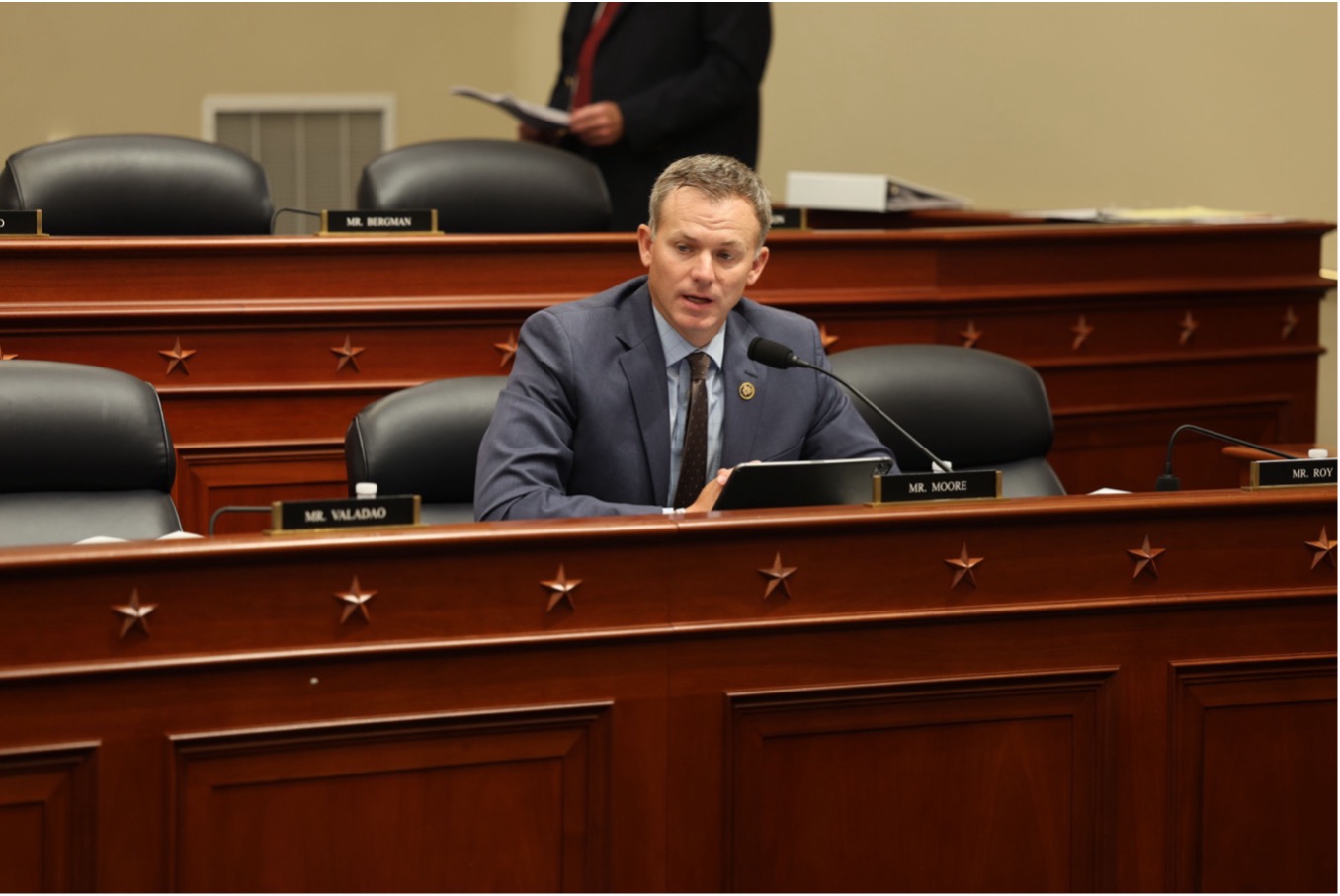
“My point is, at least the House is trying… to do things on a more consistent, sensible timeline. That's what we're doing with these CBO bills today. This isn't saying this is CBO’s fault, that we don't get this stuff done. We're asking CBO to do what they usually had done prior to 2020 and get them back to producing more data and more information for us. They provide the data to us, and we should be able to do our job. That's all we're asking here. We're not shifting blame this Congress. The House Budget Committee has been laser-focused on Sounding the Alarm about the threat posed to our nation by the debt and deficit crisis in which we find ourselves. This has been accompanied by good faith efforts to work across the aisle.”
Congressman Estes on H.R. 9751, Executive Action Cost Transparency Act:
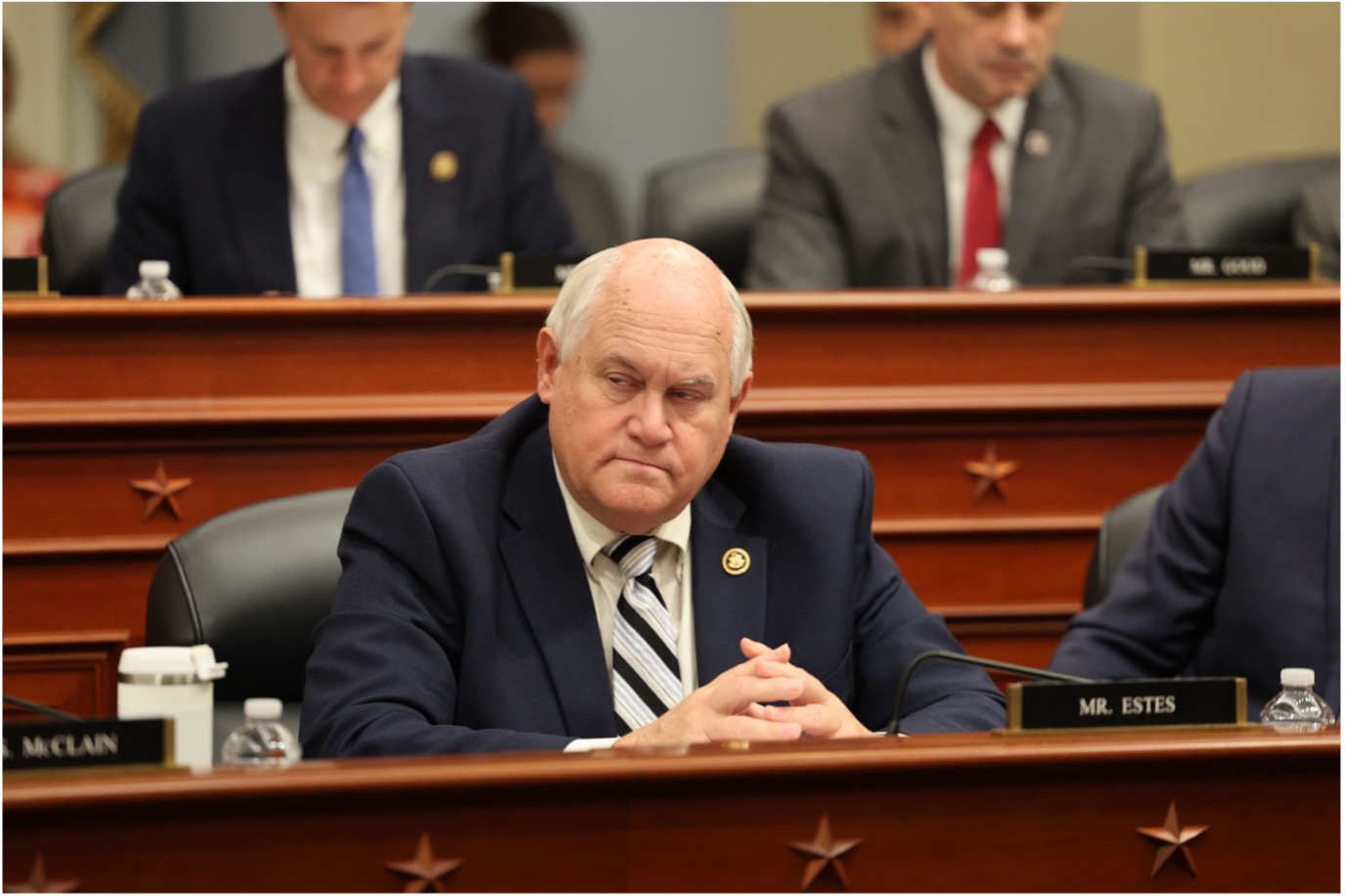
“Our budget this year is the second time in 30 years that we've passed a budget before the President's budget was released. However, in order to accurately produce a budget, we need to have all the facts. That’s going to require minor information awareness for us in terms of changing how the Congressional Budget Office does some of its processes. The CBO already factors executive and judicial actions into their baseline, and my bill would not change that practice at all.
However, CBO does not delineate the cost of each of these individual actions as they're factored into the baseline or provided as baseline updates for a member’s staff or the general public. In essence, the bill provides more transparency by delineating the cost of each of these actions that CBO factors in, so that Congress and the American people can have a resource to understand the cost of those executive actions. When lawmakers don't have access to the details of nonlegislative spending, it's like a family or small business making financial decisions while someone else is spending some of the money on unknown goods or services.”
Congresswoman McClain on H.R. 9714, CBO Oversight Act:
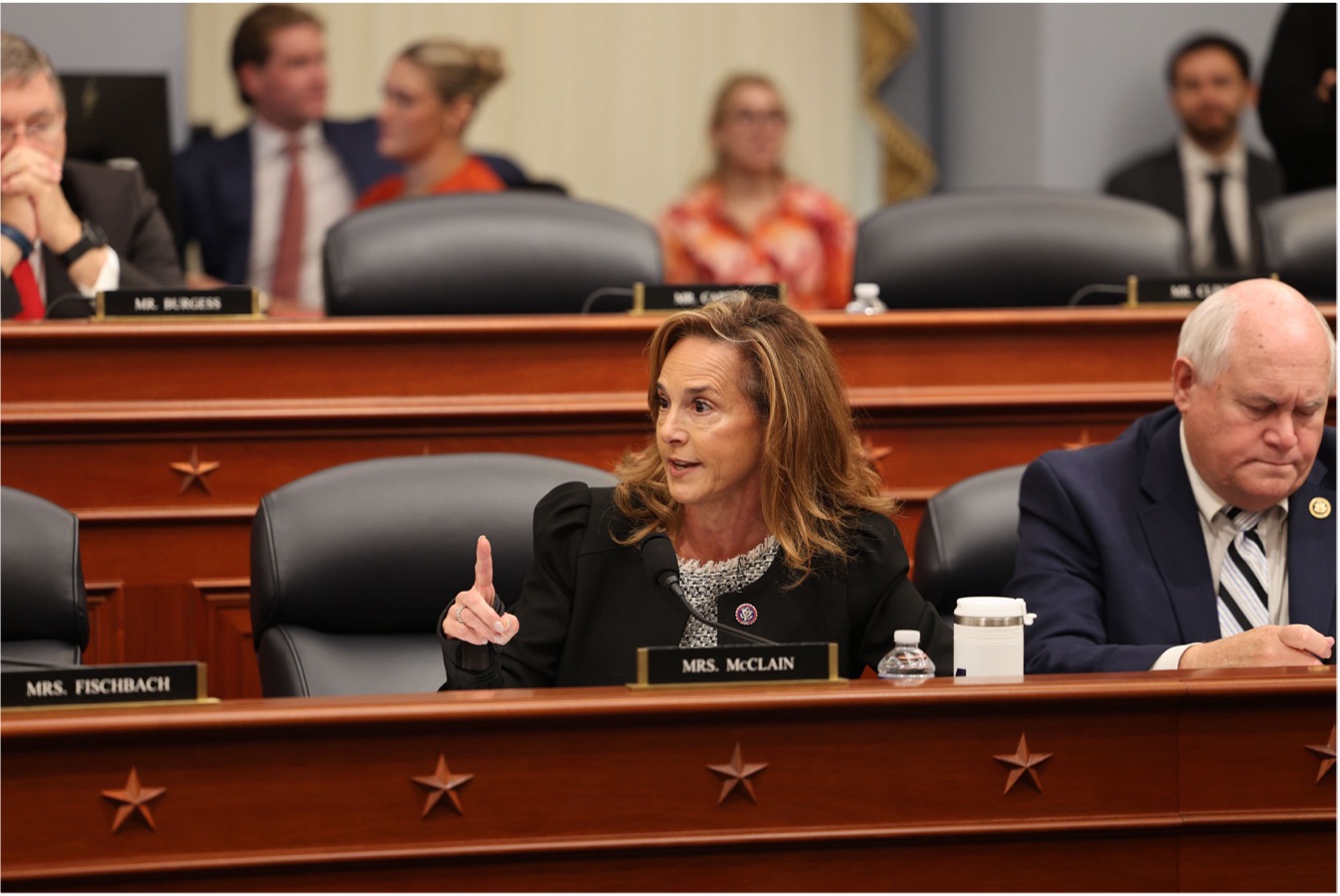
"What's the problem with oversight and accountability? It's our job to be good stewards of the taxpayers’ dollars and to know when we're spending the money wisely and when we're spending the money not so wisely. It’s not like the CBO was off by a trillion dollars on their projection of the revenue collection after the Trump middle tax cuts. That’s a lot to ask for the CBO Director to come and explain that. Or what about the $124 billion that they [CBO] were off on on the EV credits? That's just a lot to ask for. The Democrats have no problem spending your money, but when it comes time to be accountable for taxpayer money, that's just a bridge too far.”
Congressman Norman on H.R. 9714, CBO Oversight Act:
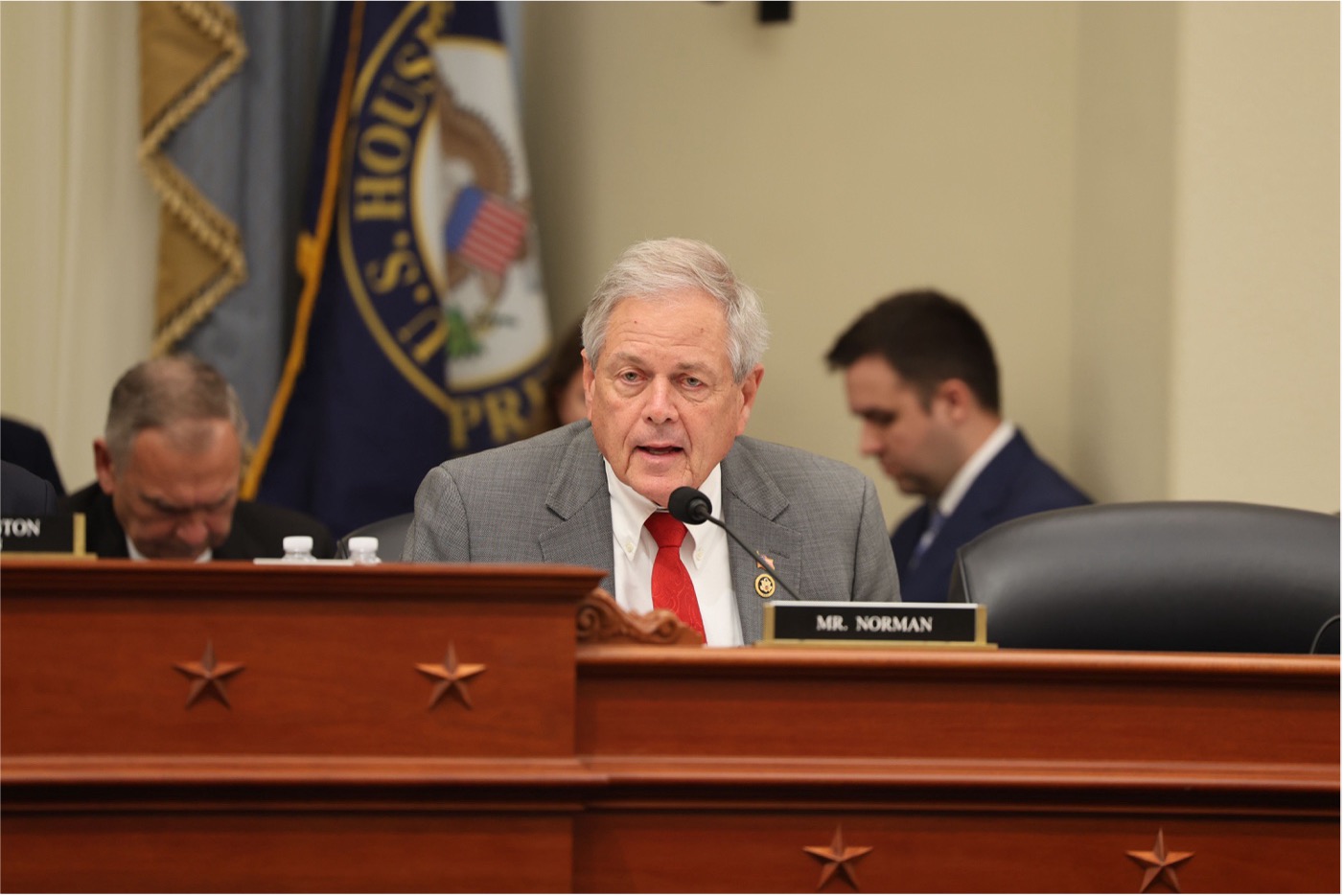
“If you look in the private sector, most companies have meetings at least once a month regardless of size. Most companies meet every week. I would remind my friends on the opposite side of the aisle, that the CBO answers to the taxpayer and to give a report is not too much to ask. Let me go over what kind of money we're talking about. How many employees work at the CBO? 285 total and 278 are full-time. What is the cost? They're requesting $65.5 million for salaries and benefits. Those salaries, if you do the math, are $229,824 thousand per individual. It represents an increase in personnel costs of $3.7 million. They're asking for a 6 percent increase. They also got one last year. The total amount of $47.1 million would cover salaries and increase $2.3 million. The CBO Director's salary ranges from $230,000 to $340,000 so the math is pretty astronomical. To ask the CBO to come forward is an easy ask to make.”
Congressman Lopez on H.R. 9714, CBO Oversight Act:
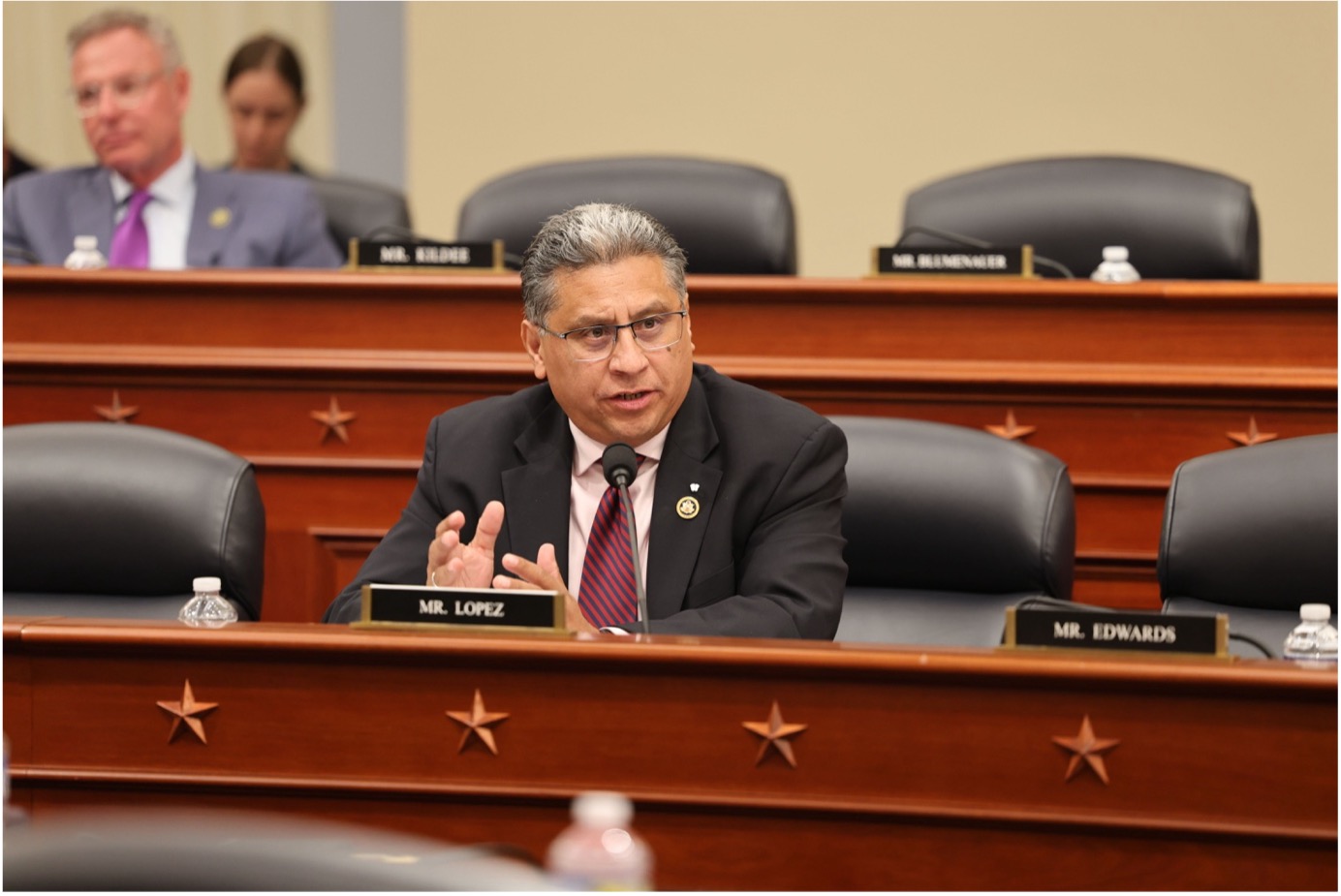
“You know it is amazing to hear that there's an opposition to having someone come and explain to the Committee the numbers and explain the rationale. I'm curious to see if the argument may be that he's too busy. There are only two things you can give away, and that is your integrity and your word. If you say you're going to do something, you should do it. You should honor it. It's my understanding that my brothers and sisters on the Democrat side have not been receiving that message of wisdom because all we're asking is for someone to appear twice a year. Are they trying to protect someone, or are they just trying to be obstructionist?”
Congressman Valadao on H.R. 9711, Congressional Budget Office Scheduling Reform Act:
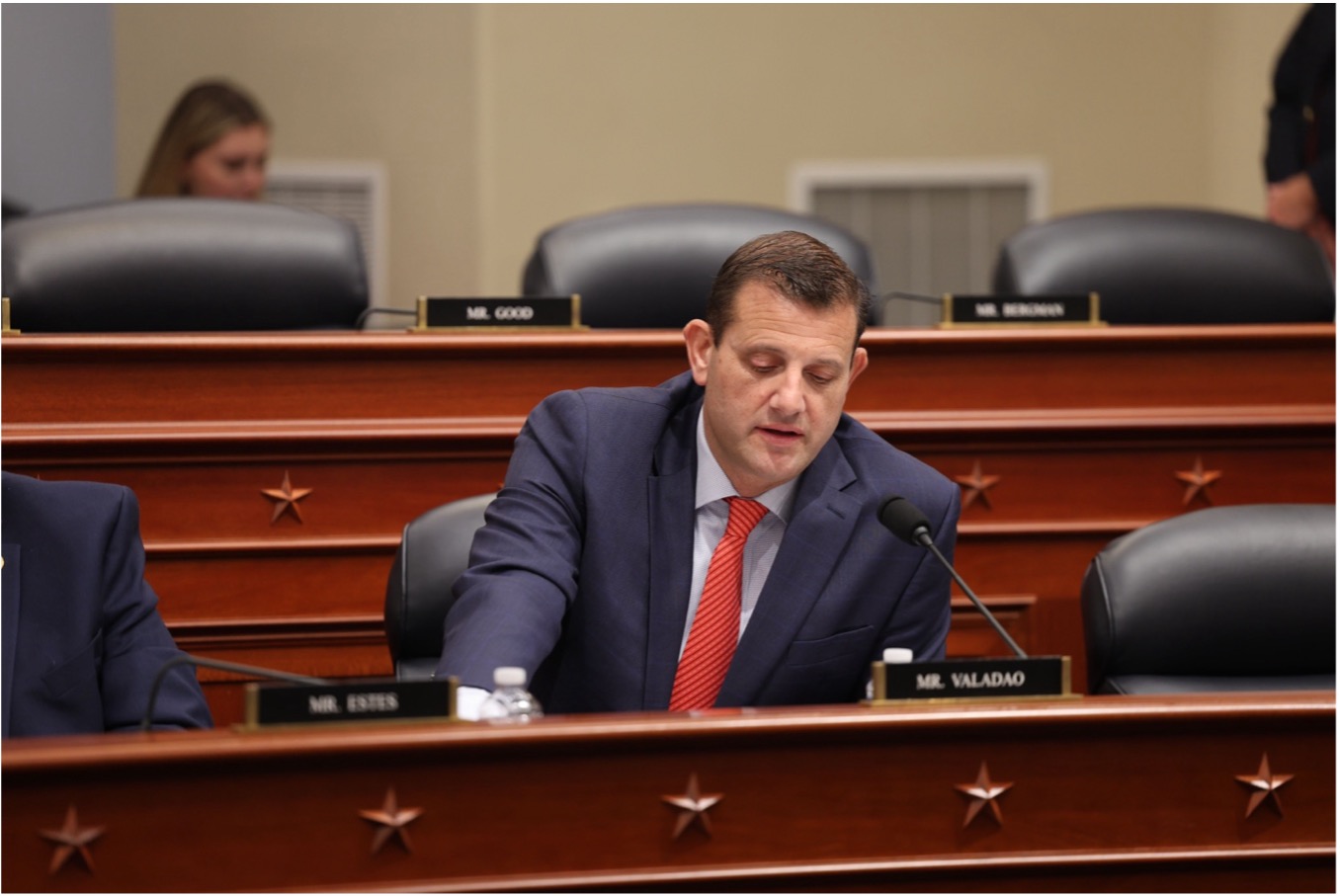
"In the past, we haven't always had much notice about when these reports will be released. I'm grateful for the CBO’s cooperation in our efforts to create a clear release schedule, which will ensure that both lawmakers and the public have consistent access to this vital information. This prevents any surprises that could disrupt our legislative process and helps keep the CBO accountable to its role as a nonpartisan provider of budgetary analysis because the congressional calendar can change.
By formalizing a release schedule, we give the CBO a framework to prioritize its workload and allocate resources to meet these deadlines without sacrificing quality. Another important aspect of this bill is how it helps increase public confidence in the budgeting process. As we all know, the CBO reports are not just used by us here in Congress. They're used by public businesses, investors, and other stakeholders who rely on CBO data to understand the fiscal health of our country. By moving toward a predictable release schedule, we send a clear message that we take fiscal transparency seriously and that we are committed to providing accurate, timely data that people can trust.”
Congressman Grothman on H.R. 8068, Stop the Baseline Bloat Act of 2024:
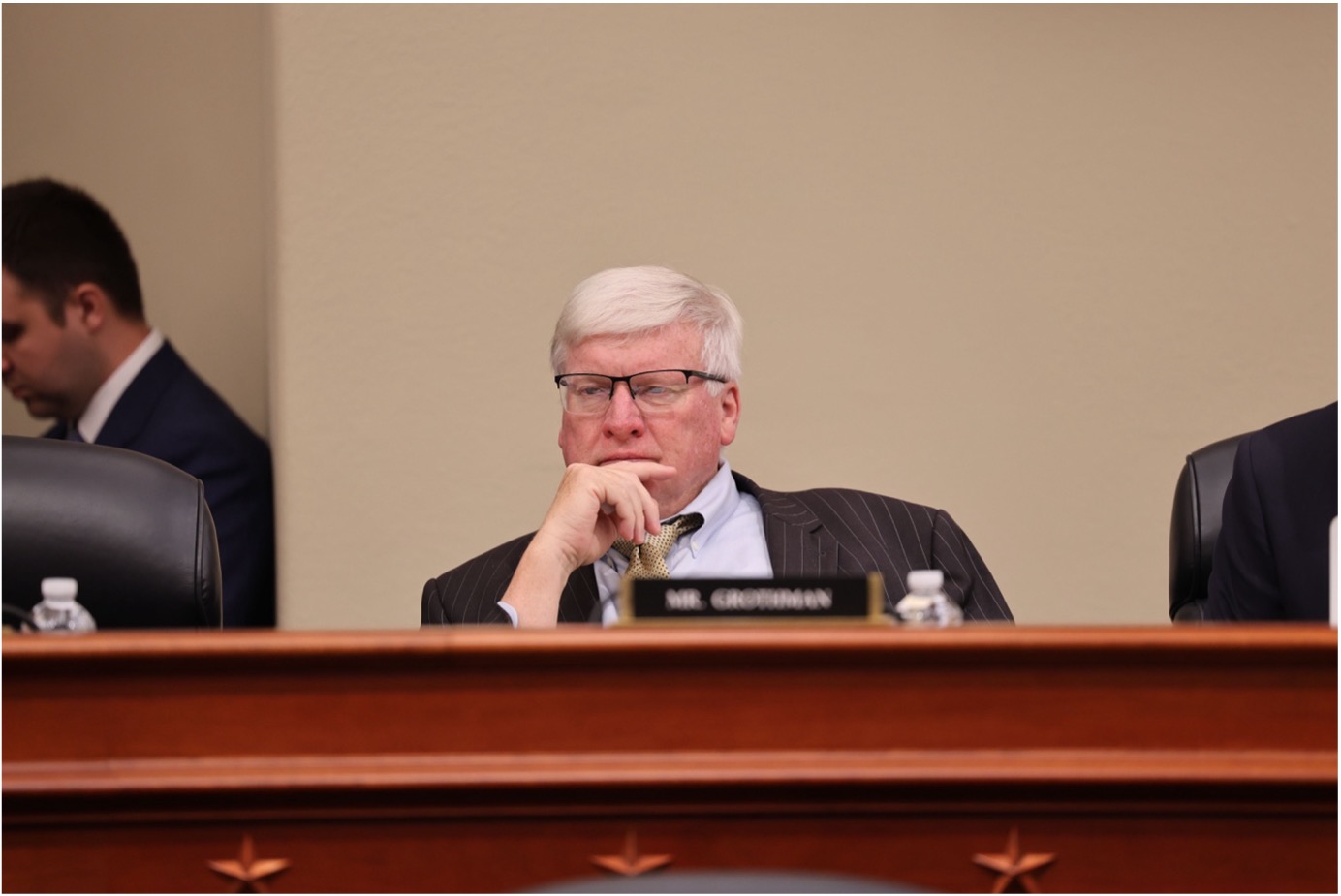
“One reason for the rise of debt in recent years has been the use and abuse of emergency spending. Emergency spending is exempt from the spending caps imposed by the Fiscal Responsibility Act. Last year, Congress designated $162 billion in emergency spending. This year, it's up to $196 billion. This culture of rampant emergency spending is encouraged by the CBO baseline budget. By law, the CBO is required to assume any spending Congress designates as emergency spending will continue throughout the entire 10-year budget window and grow with inflation.
In June, CBO raised the projected spending over the next 10 years by $945 billion. To address this distortion of the baseline, I've been pleased to work with Congressman Case of Hawaii. This simple bill would amend the Balanced Budget Emergency Deficit Control Act of 1985 to remove emergency spending from the baseline.”
Congressman Burgess on H.R. 9686, HEALTH Panel Act:
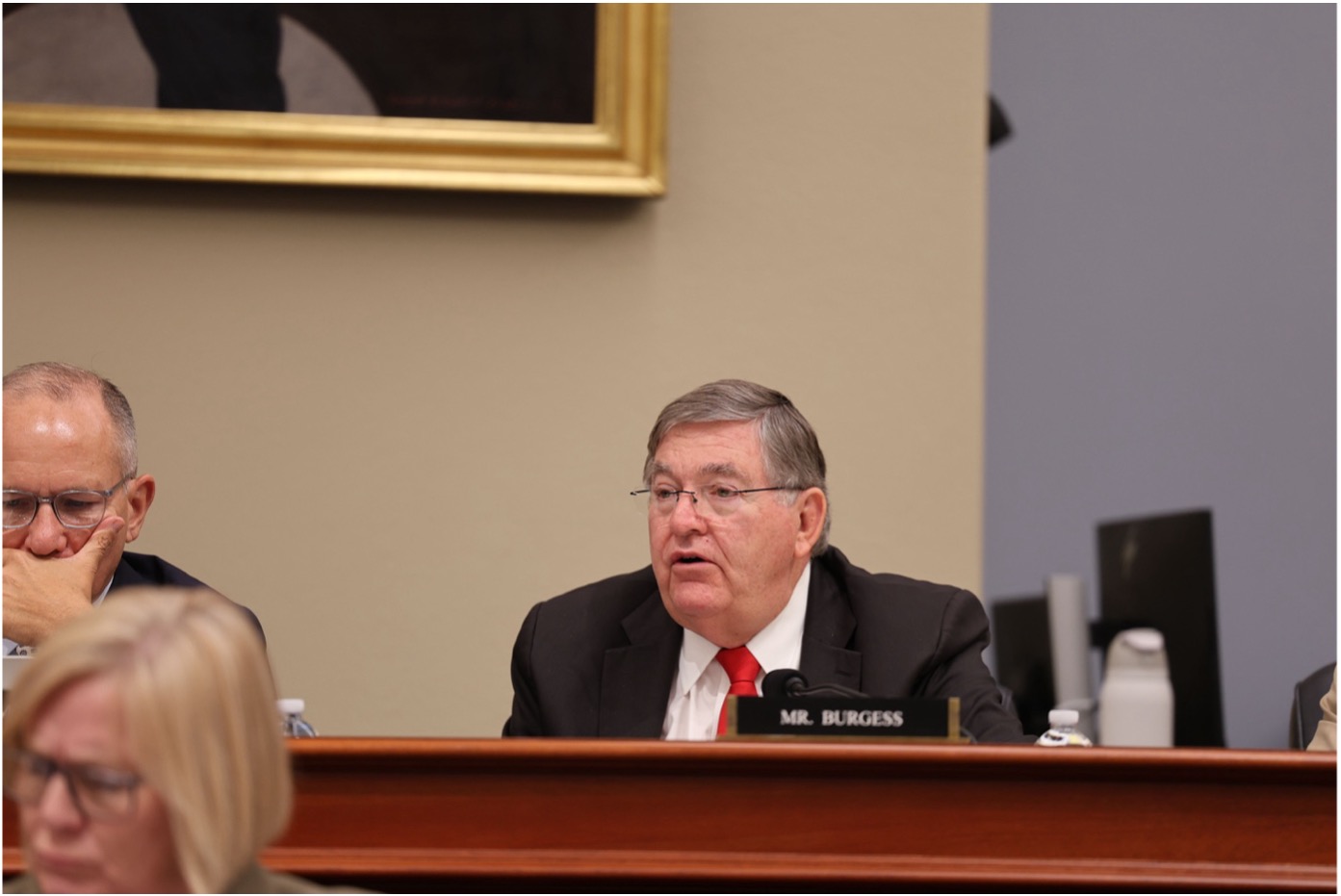
“The Panel of Health Advisors was established over 20 years ago, but it lacks statutory authority. Its duties and responsibilities are unclear. Last fall, the Health Care Task Force, which Chairman Arrington asked me to lead, had a roundtable examining the Inflation Reduction Act's effects on new medicine reaching patients. We brought in an independent health economist, a life sciences investor, and a former CBO Director, to examine the CBO's innovation model that projected that only one fewer drug would be coming to market over 10 years because of the IRA Medicare drug price controls. Every other individual and group that evaluated this said that number was significantly larger. Why the discrepancy? Why only one fewer drug from the Congressional Budget Office and some groups estimating as many as 20 or 25 fewer drugs developed? What about the damage to the underlying ecosystem of drug development in this country and the CBO Director had no answer for that. This is the type of work that this CBO Panel of Health Advisors should be doing in order to ensure that the models are the most accurate work products. We all know healthcare is the primary driver of our over $35 trillion national debt.”
Congressman Carter on H.R. 9686, HEALTH Panel Act:
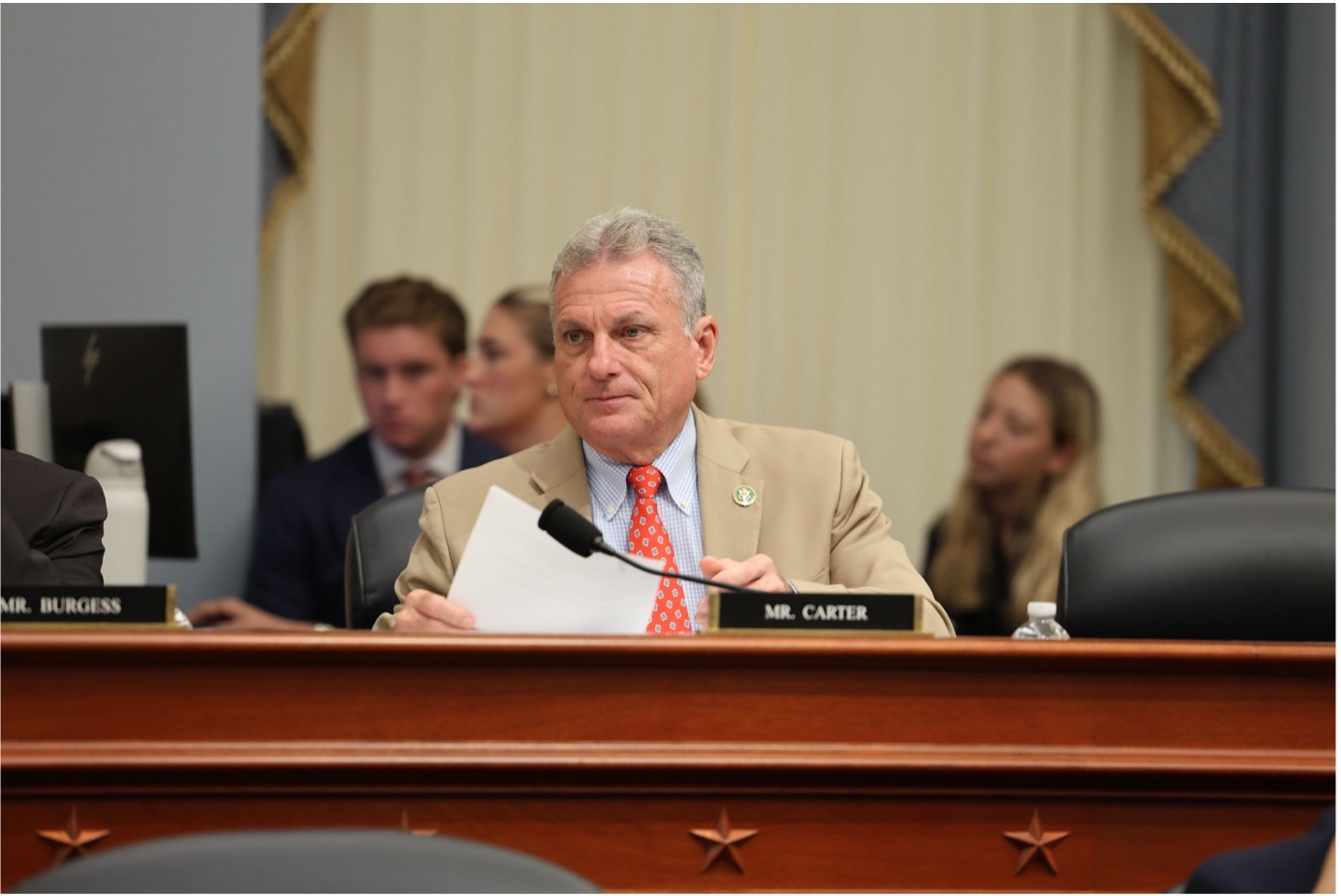
"As a pharmacist serving in Congress, health care issues are important to me as I understand how CBO’s cost estimates have a profound impact on the legislative process, especially for health care, often determining whether or not a health care bill can move through the committee process. That's why it's imperative for CBO to rely on the best available data to inform your work on health care and legislation. Twenty years ago, CBO informally established the Panel of Health Advisors, and yet there's no statutory authority for this panel. In fact, there's no clear guidance on the purpose, duty, or function of the panel. Currently, members of the Panel of Health Advisors are appointed slowly at the discretion of the CBO Director, without any requirements, nominations, or feedback from the Budget Committees or any other congressional offices. Myself, along with other members of this committee, are concerned that vesting sole appointment authority in one individual on the panel is not inclusive of different ideological positions and fails to accurately represent a range of stakeholders with expertise across the health care sector.”


